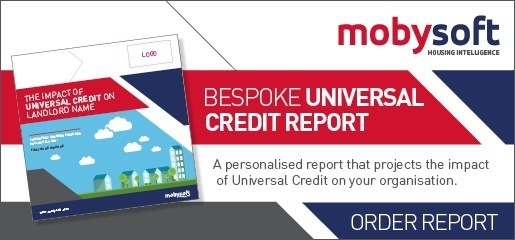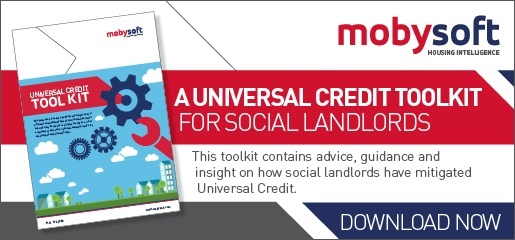Universal Credit is looming and there is one thing that social landlords cannot do and that is ‘do nothing’. Data and comment, included in this blog, comes from a variety of well-placed sources, including: First Choice Homes Oldham, City West Housing Trust (part of ForViva Group), ONS and Oxford City Council. What’s more some of these statistics provide a stark warning to landlords:
- Costs to collect rent will rise fourfold
- 50% increase in the number of direct paying tenants
City West Housing Trust, in Salford, carried out a direct payment pilot scheme with a selection of their tenants to help their preparations for the deployment of Universal Credit (UC). In the pilot their collection costs rose fourfold, due to the change in their processes and the additional support they needed to offer their tenants in this pilot. Their costs, for those taking part, per case per tenant per month rose from £14.91 to £60.51. It is worth pointing out in this pilot City West Housing Trust saw their arrears fall, however in other past pilots around the country organisations have seen their arrears rise, including: Bron Afon Community Housing led to a 50% increase in arrears, while other projects in Edinburgh, Oxford and Southwark showed increases of around 30%.
So arrears may rise, but the workload, well that’s guaranteed to increase. Typically 60% of a social landlords rental income is from Housing Benefit, which comes in the form of a single payment direct from the Local Authority(ies). After the full deployment of Universal Credit most predict that Housing Benefit (HB) will account for just 40% of rental income, and the other 60% from direct payments from tenants (including UC). So for a landlord with 10,000 tenants, housing benefit will currently account for circa 6,000 of those and they will focus on contacting the 4,000 that are direct payers. When UC is fully rolled out they will need to contact the 6,000 tenants that are paying directly, an increase in 50% of the number of tenants they will focus their time on.
Landlords will need to find and allocate additional resources to process and manage those tenants moving to Universal Credit. Simply processing and allocating so many new tenant payments is time consuming. Putting new processes in place, such as contacting and ‘triaging’ these tenants to help change their ‘culture’. But then how do income teams’ profile and identify which switched tenants are at most risk of missing rent payments? Colleagues at Mobysoft have highlighted this one area landlords are having real issues in finding processes to tackle, and this is why many are investing in our RentSense solution, as it can do this accurately after just three payment cycles.
There are other environmental factors that will also make managing UC difficult for landlords. Employment and the work environment has changed as more organisations use zero hour contracts. In September 2015 the Office for National Statistics (ONS) reported the number of people on zero hour contracts had risen to 744,000, accounting for 2.4% of the UK workforce, a trend that is predicted to continue to rise.
It is the transient nature of Zero Hour Contracts that is a major concern for the sector. “Many tenants going back into work (off UC) are straight onto zero hour contracts, so typically each week their income changes, which impacts any benefits they receive.” explained Sarah Aldred, Income Collection Manager at First Choice Homes Oldham. “In our experience it is when people switch regularly between UC and work that rent payments start to be missed. And when Universal Credit is fully implemented we expect to have around 4,500 claiming UC in Oldham, this will then have a significant impact on our operations and revenues. We have reviewed our processes and operations and will continue to do so to ensure our rent collection is optimised and as efficient as possible.”
Oxford City Council took part in the DWP’s Direct Payment Pilot in 2014 and found the experience helped them prepare for the roll out of Universal Credit, as Damon Venning, Income Manager at the council explains.
“There are a raft of challenges facing social landlords due to Universal Credit. Simply put you are assisting tenants that did not require help with their rent before. You need to help tenants change their culture and take control but you also have to challenge and change your own organisation’s culture too, what’s been done before simply won’t work. Examine your processes and systems and make investments which will help deliver real efficiencies that will enable you to support your tenants through this period of change.”
On the 27th January there is a Capita conference that focuses on how social landlords can deliver Universal Credit. Organisations with experience of readying themselves for the roll out of UC will be speaking, such Oxford City Council and First Choice Homes Oldham. You can book your places by following this link.


